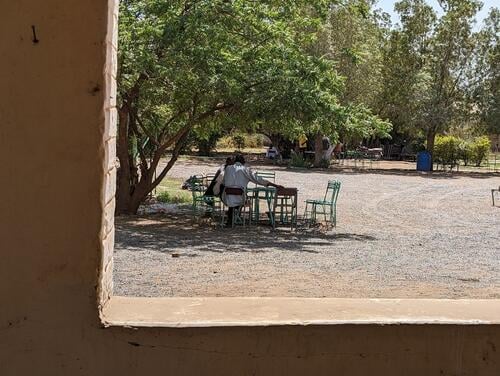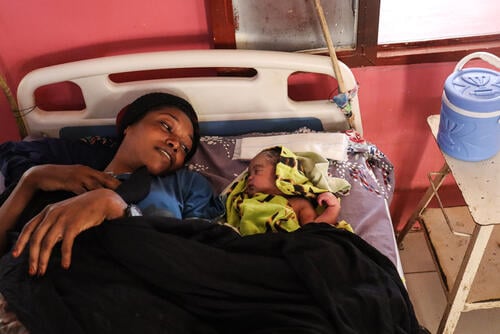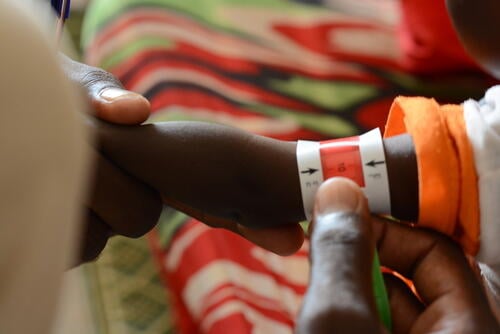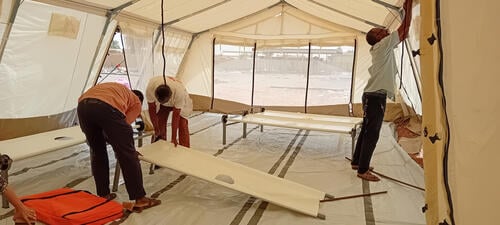Following the outbreak of war in Sudan in April 2023, close to 190,000 people have been displaced in the country’s Kassala state aloneInternational Organization for Migration IOM up until February 2024. Among them are approximately 40,000 people who fled recent violence in Al-Jazeera state.
The plight of internally displaced people in Kassala is emblematic of the broader humanitarian crisis in Sudan, resulting from the ongoing brutal conflict. There is extensive loss of life, and people are experiencing widespread food insecurity and the loss of their livelihoods, underscoring the urgent need for comprehensive humanitarian assistance.
Médecins Sans Frontières (MSF) teams have recently wrapped up a 10-week programme to provide targeted medical and humanitarian aid in response. The scale of the crisis is beyond the capacity of any single organisation, demanding urgent and coordinated action from the international community.
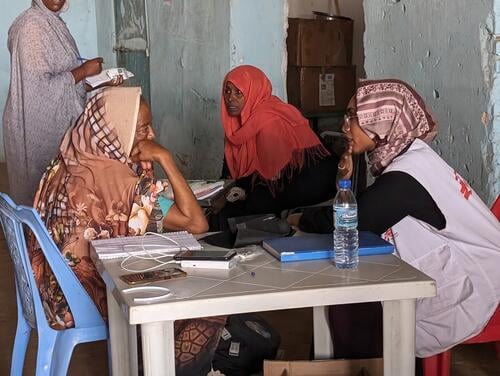
The journey to Kassala was risky for displaced people; many of them had been displaced several times already before arriving there.
“After having the money to move from Wad Madani to Kassala, moving became difficult. We searched for four days to find a vehicle and couldn’t find any,” says Abdul Ghani, a displaced person in Kassala. “We used a karoo [a wooden cart pulled by a donkey], and then we used a tuk-tuk, where people were divided into groups.”
“We were near Bekah bridge for the evacuation, when a warplane flew over us,” says Ghani. “In return, they [Rapid Support Forces] used anti-aircraft guns and we were 20 metres away. This was one of the most difficult situations we went through.”
The protection of sexual and gender-based violence survivors remains a pressing concern, with limited access to safe spaces and support services exacerbating their vulnerability.Ozan Agbas, MSF operations manager for Sudan
The living conditions of displaced people in Kassala are extremely dire, marked by overcrowded shelters, limited access to food and clean water, and inadequate healthcare services. Since the end of December 2023, MSF teams have treated 2,126 patients for respiratory infections in the different gathering sites in the city.
While this is a common illness in the cold temperatures, it’s been made worse for people who have no choice but to sleep in shelters that do not sufficiently protect them from the cold and wind.
Many rely on the generosity of host communities for necessities, heightening their vulnerability to disease and deprivation. The spectre of cholera, typhoid, and dysentery looms large, threatening the health of displaced people.
MSF provided basic healthcare services, sexual and reproductive healthcare, mental healthcare, and health promotion activities. Mobile clinics were sent to remote gathering sites, ensuring that essential medical care reached those who needed it. Between 11 February and 10 March, teams provided 2,545 medical consultations, and offered psychological first aid to 1,334 people in both group sessions and individual sessions.
“Significant challenges persist. The soaring cost of medical services, particularly for women in need of reproductive healthcare, presents a formidable barrier to access,” says Ozan Agbas, MSF operations manager for Sudan. “In addition, the protection of sexual and gender-based violence survivors remains a pressing concern, with limited access to safe spaces and support services exacerbating their vulnerability.”
Access to treatment for diseases such as hypertension and diabetes is severely compromised, further exacerbating the health crisis in Kassala. Almost 800 patients (13 per cent of the overall number of outpatient consultations) were treated for chronic diseases by MSF teams during the 10 weeks of our activities. On top of that, limited movements of supplies and inflated costs have rendered essential medications inaccessible for many.
I am sick, I have hypertension; because of the conflict I have not taken my medication for 10 months. Where would I get the money for it? I can’t afford it.A displaced woman who experienced multiple displacements since the beginning of the war
“I am sick, I have hypertension; because of the conflict I have not taken my medication for 10 months,” says Moana*. “Where would I get the money for it? I can’t afford it. I tried to collect some money, do some work here. The assistance we receive is not enough.”
The need for expanded humanitarian efforts extends far beyond the confines of Kassala state. Urgent action is desperately needed across all of Sudan, especially in harder-to-reach areas like Darfur and Khartoum. It’s also needed in eastern Sudan, where more access is possible, but only a trickle of assistance in proportion to the vast humanitarian needs gets through.
More aid and strengthened coordination between the few existing groups present is needed in order to ensure basic access to healthcare, a sustainable supply of food, clean water, and sanitation to alleviate the suffering of displaced communities and prevent further loss of life.
*Names changed to protect identity
In eastern Sudan. MSF runs health facilities in Taneidba and Um Rakouba camps serving refugees, internally displaced people and local communities. In Blue Nile, we support Ad Damizine teaching hospital.
MSF teams work in 11 states: Khartoum, Port Sudan, Al-Jazeera, White Nile, Blue Nile, River Nile, Al Gedaref, West Darfur, North Darfur, Central Darfur and South Darfur state. MSF teams are also providing assistance to refugees and returnees across Sudan´s borders in South Sudan and Chad.



